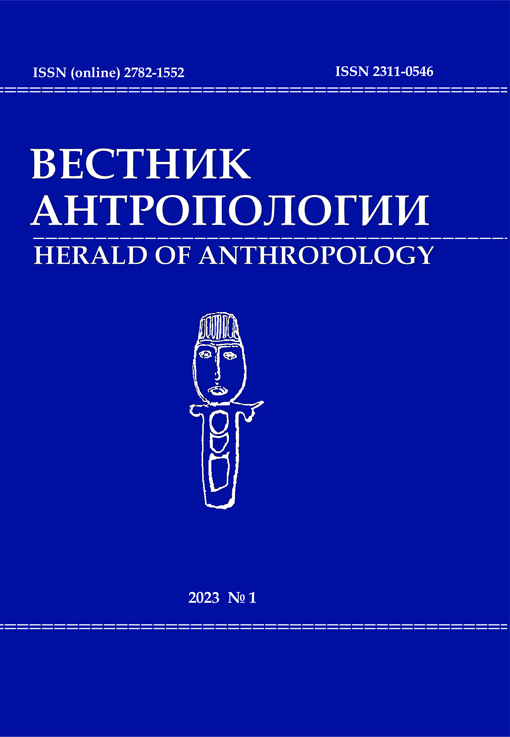Parental Family Interaction Strategies in the Context of the Actualization of Religious Identity Among Tajiks in Moscow
DOI: 10.33876/2311-0546/2023-1/217-233
Keywords:
Islam, religious practices, parental authority, identity, Tajiks, migrants in MoscowAbstract
The intensification of migration, the transformation of identities and the need to restructure everyday life of migrants in the host society not only affect the migrant community, but also have a significant impact on the culture in the recipient country. The purpose of this article is to examine, using the example of Tajiks in Moscow, how the actualization of religious identity affects the revision of parental authority in the family. The research methods included interviews with young migrants whose everyday life is structured by religious practices (prayer, ablutions, etc.). The study revealed certain trends to redefine parental authority, which affect directly the relationships within the informants’ families. The actualization of religious identity is often a consequence of constructing a social reality in a new context, and sometimes even legitimizes this need to do so. Communicative networks and religious communities created by migrants in order to acquire knowledge about Islam result in parents losing their role of the bearers of religious knowledge.





















